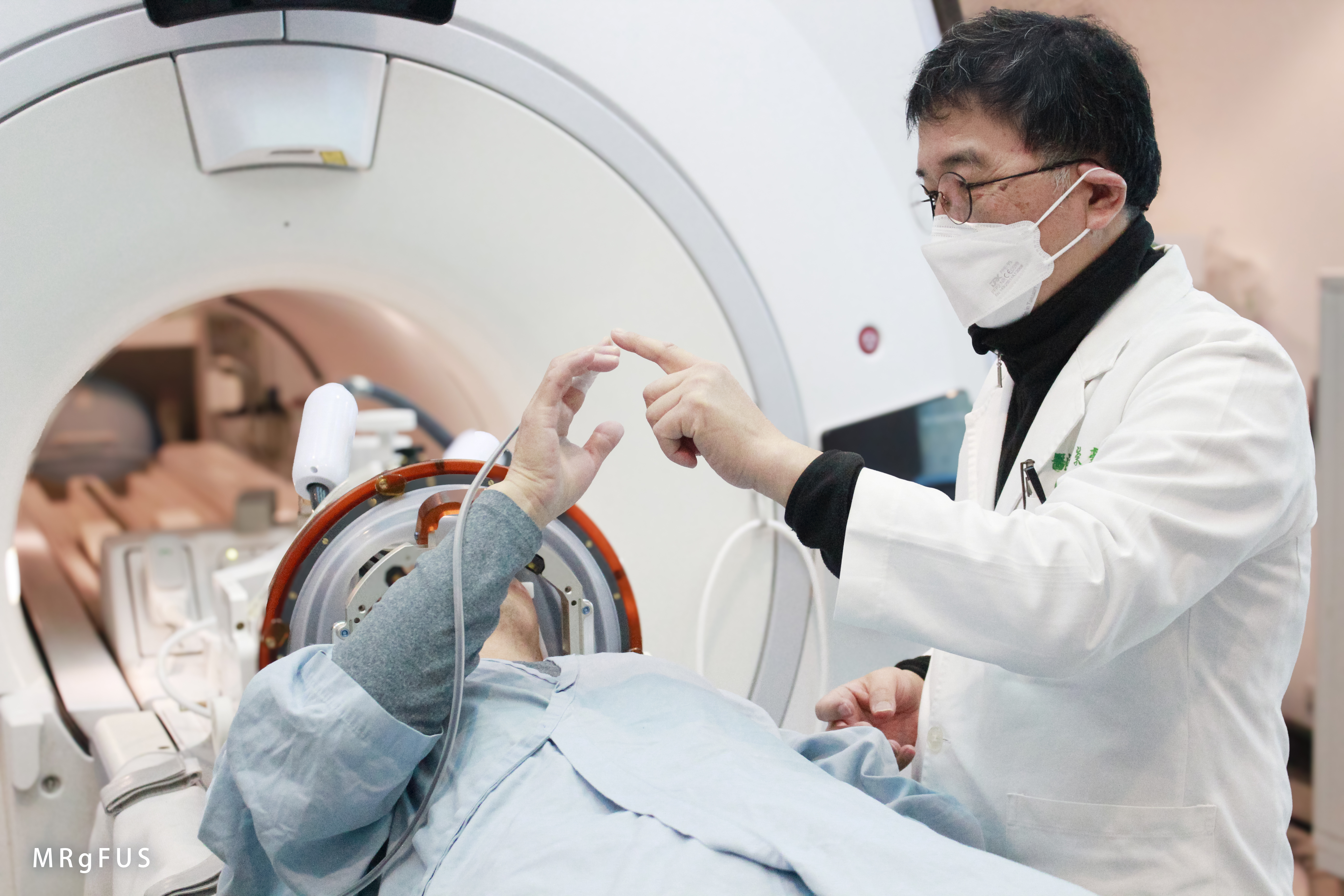Neurology
Neurology
Nationally certified Neurology Medical Center
We have a nationally certified team of neurology experts, equipped with up-to-date professional knowledge and innovative techniques. We provide comprehensive care for urgent, severe, difficult, and rare neurological diseases, hoping that every patient receives the most appropriate medical care.
Wei-Shih Huang 002742@tool.caaumed.org.tw
Yu Ao 018437@tool.caaumed.org.tw
Department Introduction
The most professional neuromodulation treatment team has received the NHQA National Medical Quality Award Bronze Medal and the SNQ National Quality Mark. In clinical research. We have been recognized and funded by national research institutions for several consecutive years. The MR-guided focused ultrasound treatment allows patients to regain a colorful life.
2. Division of stroke and neurologic critical care :
To treat patients with strokes, we have integrated neurology, neurosurgery, interventional neuroradiology, rehabilitation, and traditional Chinese medicine to establish a Stroke Center, providing comprehensive and complete care for all stroke patients.
3. Division of Neuroimmue and Neurogenetic Disorders :
A medical center in Taiwan for the diagnosis and treatment of neuroimmunological, peripheral neuromuscular diseases and other rare genetic disorders, including multiple sclerosis, neuromyelitis optica spectrum diseases, autoimmune encephalitis, myasthenia gravis, acute and chronic demyelinating polyneuropathies, familial amyloid polyneuropathy (FAP), and spinal muscular atrophy (SMA).
4. Division of dementia and general neurology :
Committed to research about new biological markers, we seek more forward-looking diagnostic and treatment solutions. Clinical trials for new drugs are also one of our important tasks, as we explore innovative treatment methods for dementia through rigorous clinical research.
5. Division of Epilepsy :
Long-term continuous video EEG monitoring examines brainwave activity while simultaneously utilizing structural and functional MRI and nuclear medicine imaging to assist in detecting the etiologies and signs of epilepsy. For drug-resistant epilepsy, we integrate neurologists, neurosurgeons, psychiatrists, interventional neuroradiologists, nuclear medicine physicians, and psychologists to provide procedures for removing epileptic foci or neuromodulation surgeries (such as vagus nerve stimulation), achieving comprehensive and complete treatment and optimal care for epilepsy patients.
Innovative Research and Development
1. Division of Parkinson's disease and Movement Disorders :
Utilizing personalized, precise magnetic resonance-guided focused ultrasound to treat patients with essential tremor and Parkinson's disease, as well as ultrasound-guided botulinum toxin injections for the precise treatment of movement disorders and others such as blepharospasm, hemifacial spasm and focal dystonia.
CMUH is the first hospital in Taiwan to perform intravenous thrombolysis bridging with intra-arterial thrombectomy combined with intracranial vascular stenting. We participate in various international clinical trials of acute stroke management (TASTE and EXTEND).
3. Division of Neuroimmue and Neurogenetic Disorders :
Focused on research about neuroimmunological diseases such as autoimmune encephalitis and related antibodies; conducting clinical trials for stem cell therapy in multiple sclerosis (the first in Taiwan); performing autonomic nervous system (sudoscan) examinations and neuromuscular ultrasound examinations.
4. Mesenchymal Stem Cell therapy as add-on treatment for acute ischemic stroke.png)
5. Functional MRI and neuromodulation studies focusing on freezing of gait in Parkinson’s disease and dementia..png)
6. AI detecting acute infarction from non-contrast CT images.png)
Service
Disease
1. Parkinson's and Movement Disorders Department : Focuses on Parkinson's disease (diagnosis and treatment, wave knife, and deep brain stimulation), essential tremor (diagnosis, medication, and wave knife treatment), dystonia (diagnosis, medication, and botulinum toxin injection treatment), myoclonus, and chorea, as well as drug-induced movement disorders.
2. Stroke and Neurocritical Care Department : Provides acute treatment for strokes and related chronic conditions (intracranial and extracranial vascular stenosis, diabetes, hypertension, hyperlipidemia, smoking cessation, post-stroke spasticity) assessment and treatment.
3. Neuroimmunology and Genetic Disorders Department : Specializes in multiple sclerosis, neuromyelitis optica, autoimmune encephalitis, myasthenia gravis, autoimmune myopathy, acute and chronic demyelinating neuropathies, familial amyloid polyneuropathy, spinal muscular atrophy, and hereditary muscle and nerve disorders.
4. Dementia and General Neurology Department : Covers Alzheimer's disease, vascular dementia, frontotemporal dementia, Lewy body dementia, neurodegenerative diseases, and general neurological disorders.
5. Epilepsy Department : Focuses on refractory epilepsy and vagus nerve stimulation.
Symptoms
1. Parkinson's and Movement Disorders Department : Tremor, jerky, choreiform and other involuntary movements.
2. Stroke and Neurocritical Care Department : Sudden onset of unilateral weakness or numbness in the limbs, facial drooping, cognitive function abnormalities, double vision, dizziness, headache, and unsteady walking.
3. Neuroimmunology and Genetic Disorders Department : Bilateral facial and limb weakness or numbness associated with autoimmune diseases and with positive family history.
4. Dementia and General Neurology Department : Decline in cognitive or memory functions.
5. Epilepsy Department : Convulsive seizures, absence seizures, and other intermittent symptoms such as sensory abnormalities and autonomic dysfunction
Recommended Physician
1. Parkinson's and Movement Disorders Department:Chon-Haw Tsai、Ming-Kuei Lu、Jui-Cheng Chen、Hui-Chun Huang、Yu Ao、Sheng-Ta Tsai、Yun Lin
2. Stroke and Neurocritical Care Department:
▪ IV-tPA:Kang-Hsu Lin、Wei-Shih Huang、Chung-Hsiang Liu
▪ IA thrombectomy:Hung-Yu Huang、Wei-Chun Wang、Shin-Kuang Jiang
▪ AI diagnosis of stroke:Wei-Chun Wang
3. Neuroimmunology and Genetic Disorders Department:Yuh-Cherng Guo、Woei-Cheang Shyu、Ching-Hua Lu、Fu-Yu Lin、Shang-Chih Huang
4. Dementia and General Neurology Department:Yu-Wan Yang、Cheng-Chun Lee、Chun-Hung Tseng、Kuan-Fei Chen、TU MIN-CHIEN
5. Epilepsy Department:Yi-Ting Hsu、Yi-Chien Yang、Chin-Yang Lin





































